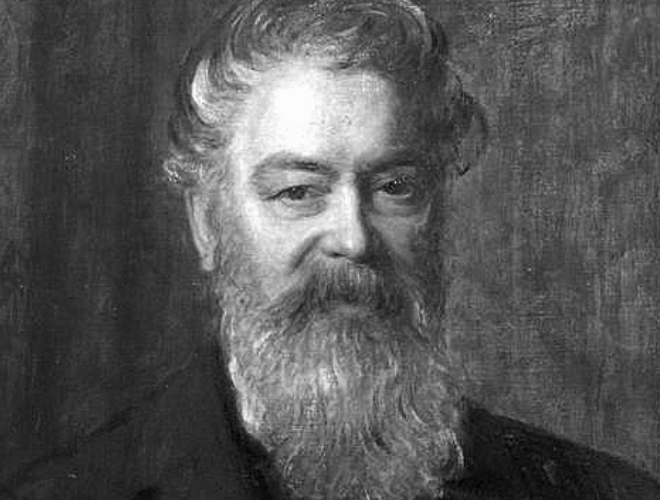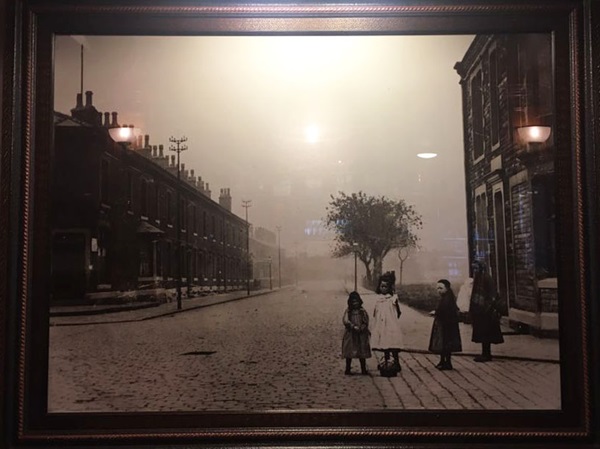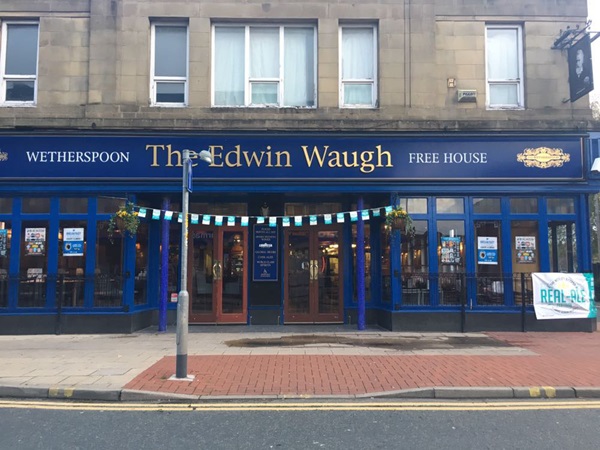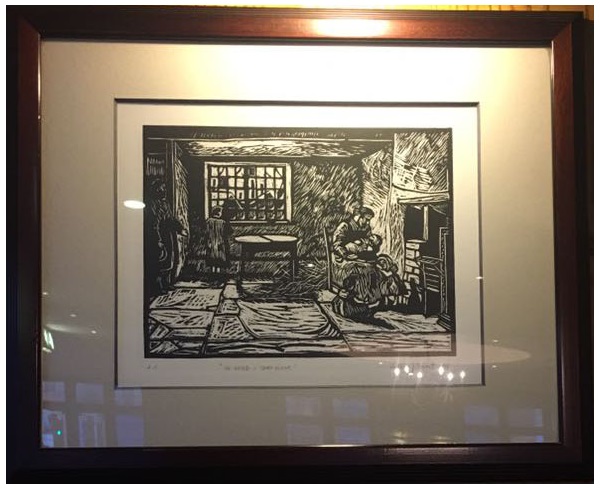Pub history
The Edwin Waugh
This is named after the dialect poet Edwin Waugh, described as the ‘Burns of Lancashire’. In 1847, he became assistant secretary to the Lancashire Public Schools Association and moved to Manchester, which he hated. However, his horizons were widened by new acquaintances full of political ideals and wide reading. He earned a living by writing poetry and reciting verses in public. When he died in 1890, he was mourned by thousands as the ‘voice of Lancashire’s homely virtues’.

10–12 Market Street, Heywood, Manchester, OL10 4LY
This is named after the dialect poet Edwin Waugh, described as the ‘Burns of Lancashire’. In 1847, he became assistant secretary to the Lancashire Public Schools Association and moved to Manchester, which he hated. However, his horizons were widened by new acquaintances full of political ideals and wide reading. He earned a living by writing poetry and reciting verses in public. When he died in 1890, he was mourned by thousands as the ‘voice of Lancashire’s homely virtues’.
A copy of an Edwin Waugh poem, entitled Come Whoam to the Childer an’ me.
A copy of an Edwin Waugh sketch.
An old photograph of Heywood.

External photograph of the building – main entrance.






